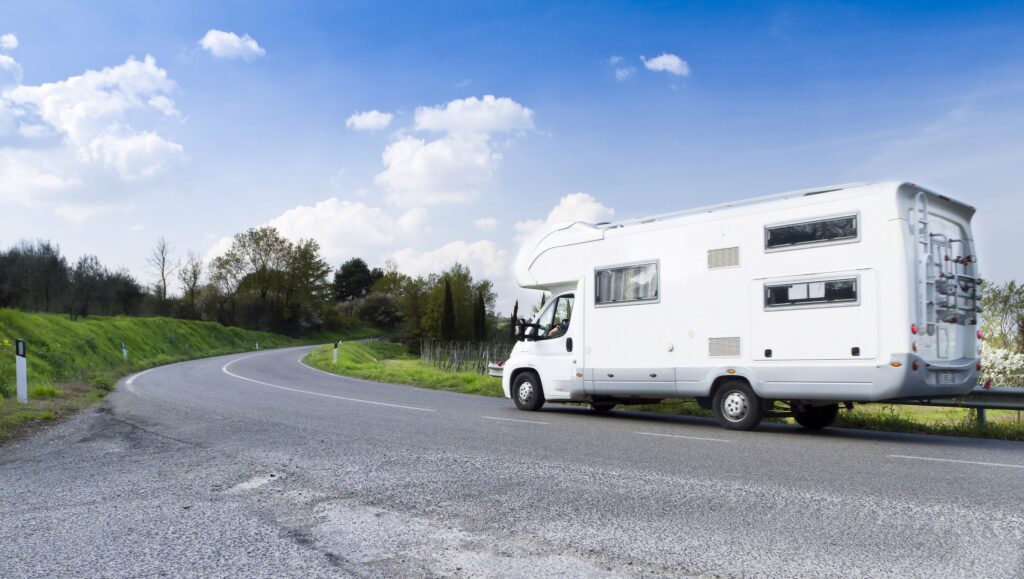You love your motoring lifestyle, the freedom of hitting the open road with valued possessions and modern conveniences at your fingertips; but how are you covering the risk of losing an investment as large as an RV?
An RV can refer to a motorhome, campervan, caravan, mobile home or any other vehicle you can live and travel in. Some owners make the mistake of insuring their RV under their auto policy instead of purchasing a separate motorhome insurance policy. Even the assumption that personal belongings inside your RV are covered under your homeowner’s policy isn’t entirely accurate; that coverage is limited when belongings are kept somewhere other than your primary residence.
Many variables will factor into your need for specialized RV insurance:
- How often you drive your RV? Someone who RVs part-time has fewer liability issues than a retired couple who lives in/drives their motorhome full-time. (Insurance companies generally set the definition of “full time” as more than five or six months in a year.) If you live in an RV year-round, you can get special insurance, similar to a homeowner’s policy, that will cover you completely.
- Larger recreational vehicles are more expensive to insure because they can potentially cause more damage to another vehicle.
- Highly customized RVs can be more expensive to repair and therefore more costly to insure.
- You keep more valuables in an RV than in your car/truck – so you need a higher personal property limit on your insurance.
- Motorhomes come with unique, permanent attachments and accessories (for example, awnings, satellite dishes, antennas) that need to be insured.
- Insurance coverage could vary depending on which country you are driving through in your RV.
- The cost of replacing a stolen or damaged RV is much higher than the average car or truck.
- You may wish to take advantage of a “storage option” that lets you cut your premium by suspending liability and collision coverages when you’re not using your RV. (Comprehensive coverage stays in effect to protect you against threats like theft, wind, fire or storms when your RV is stored.)
You can learn more about RV insurance and RV’s in general from Go Rving Canada. Be sure to talk to your local insurance broker about all of these factors and options so that you can motor to your vacation destination in peace. If you’re interested in a quote, we can help! Happy trails!
